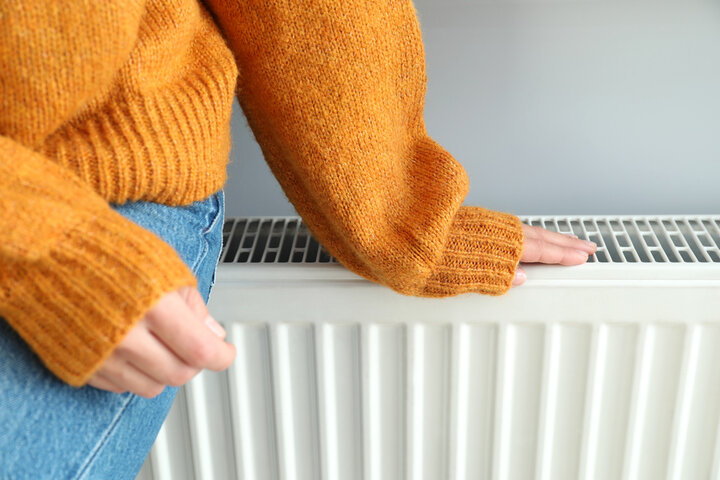Is Radiator Heat Efficient Las Cruces. As the cooler months descend upon Las Cruces, New Mexico, residents turn their thoughts to heating solutions. While central forced-air systems are common, many homes, especially older ones, or those seeking a different kind of warmth, utilize radiator heating. Often misunderstood, radiator heat offers a unique kind of comfort, but questions about its efficiency and cost frequently arise. For Las Crucens considering heating options, a clear understanding of radiator heating versus central heating, alongside its economic implications, is essential.
What is Radiator Heating?
Radiator heating, commonly known as hydronic heating or hot water heating, uses a boiler to heat water. This hot water is then circulated through pipes to radiators, baseboard heaters, or in-floor radiant tubing installed throughout the home. The radiators release warmth through two processes: convection, which warms the air around them, and radiation, which emits infrared energy that directly warms objects and people in the room. Once the water cools down, it returns to the boiler to be reheated, creating a continuous loop.
Radiator vs. Central Heating
The distinction between radiator heating and central forced-air heating lies fundamentally in their method of heat distribution.
Heat Source:
Radiator Heating: Uses a boiler (powered by natural gas, propane, or electricity) to heat water.
Central Heating: Typically uses a furnace (powered by natural gas or electricity) to heat air.
Heat Distribution:
Radiator Heating: Distributes heat via hot water circulating through pipes to radiators, baseboard heaters, or in-floor radiant tubing. Heat radiates outwards and warms the air around the units.
Central Heating: Distributes heat via a network of ducts and vents throughout the house. A blower fan pushes heated air into rooms.
Type of Heat:
Radiator Heating: Provides a radiant heat that warms objects and surfaces directly, leading to a more even and consistent warmth. It’s often described as a “deeper” or “cozier” heat, similar to the warmth from a sunny window or a fireplace.
Central Heating: Delivers convective heat (forced air), which can lead to temperature fluctuations as the furnace cycles on and off. It heats the air in the room, which then warms objects.
Air Quality and Allergens:
Radiator Heating: Does not blow air, meaning it doesn’t circulate dust, allergens, pet dander, or pollutants throughout the home. This can be a significant advantage for individuals with allergies or respiratory sensitivities.
Central Heating: The forced-air system can circulate dust, allergens, and other particles, potentially impacting indoor air quality, unless filters are meticulously maintained.
Noise Level:
Radiator Heating: Generally operates very quietly, with minimal noise from the boiler or the gentle hum of circulating water.
Central Heating: Can be noisier due to the sound of the blower fan, air rushing through ducts, and the occasional creaking of ductwork.
Zoning:
Radiator Heating: Is often easier to zone, allowing different rooms or areas to be heated to different temperatures independently by adjusting individual radiator valves or using multiple thermostats.
Central Heating: Zoning is possible but typically requires more complex ductwork modifications or specialized dampers, making it generally more expensive to implement effectively.
The Efficiency of Radiator Heat in Las Cruces, New Mexico
The efficiency of radiator heat in Las Cruces, particularly when compared to central forced-air systems, is a nuanced topic.
Even Heat Distribution: Radiator systems tend to produce a more consistent and even heat throughout a room and across different rooms. Because heat radiates from the units and warms objects, you experience less hot and cold spots. In Las Cruces, where daily temperature swings can be significant, this consistent warmth can translate to better comfort without constantly adjusting the thermostat.
Reduced Air Leaks: Since hydronic systems use pipes, not ducts, there’s no energy loss through leaky ductwork (a common issue with forced-air systems). In older homes, this can be a significant source of efficiency improvement.
No Heat Loss in Ducts: Heated water (or steam) loses very little heat as it travels through insulated pipes to the radiators. Forced air, however, can lose considerable heat if ducts run through unconditioned spaces like attics or crawl spaces, which is common in Las Cruces.
Quiet Operation: The quiet operation of radiators can contribute to a sense of efficiency by not creating distracting noises, which might otherwise lead occupants to crank up the thermostat.
Targeted Heating (Zoning): The ability to easily zone a hydronic system allows homeowners to only heat the rooms they are actively using. In Las Cruces homes with varying occupancy patterns, this can lead to substantial energy savings by preventing the heating of empty rooms.
However, factors that can affect efficiency include:
Boiler Age and Maintenance: Older, less efficient boilers will naturally consume more energy. Regular maintenance is crucial for optimal performance.
Insulation: The overall insulation of the home plays the biggest role in heat retention, regardless of the heating system. Good insulation is paramount in Las Cruces’ climate to prevent heat loss.
Response Time: Hydronic systems, especially those using cast iron radiators, can take longer to heat up initially compared to forced-air systems. However, once heated, they retain and radiate warmth for longer periods.
Overall, modern, well-maintained radiator systems can be highly efficient, especially in homes where even, consistent heat and good indoor air quality are priorities.
Is Radiator Heat Expensive?
Addressing the cost of radiator heating involves looking at both initial installation and ongoing operational expenses.
1. Installation Cost:
New Installation: Installing a brand new hydronic heating system (boiler, piping, radiators) can be more expensive upfront than installing a new central forced-air system. The labor involved in running pipes and installing individual radiators can be higher than ductwork.
Replacement: If you already have an existing hydronic system and only need to replace the boiler, the cost can be comparable to or less than replacing a full furnace and ductwork.
2. Operational Costs (Energy Bills):
Fuel Type: The operational cost heavily depends on the fuel source. Natural gas is generally the most economical choice in Las Cruces. Electric boilers can be more expensive to run.
Boiler Efficiency: Modern, high-efficiency condensing boilers (which extract more heat from fuel gases) can offer significant savings compared to older, less efficient models. An older boiler might be expensive to run.
Home Insulation: As mentioned, a well-insulated home will always be cheaper to heat, regardless of the system. In Las Cruces’ desert climate, preventing heat loss (and heat gain in summer) is crucial.
Thermostat Use & Zoning: Smart thermostat use and effective zoning can lead to substantial savings. Heating only the rooms you use means less wasted energy.
Maintenance: Regular maintenance (annual boiler tune-ups) keeps the system running efficiently, preventing costly repairs and energy waste.
3. Maintenance Costs:
Hydronic systems generally have fewer moving parts than forced-air systems (no large blowers, belts, or complex duct systems), which can mean lower maintenance frequency or cost. However, a boiler tune-up is essential annually.
4. Long-Term Value:
Radiator systems are known for their longevity. A well-maintained boiler can last 20-30 years or more, significantly longer than many forced-air furnaces. This long lifespan can offset higher initial installation costs over time.
The superior comfort and air quality benefits can add to a home’s appeal and value, which might not be directly quantifiable but is a significant advantage for residents in Las Cruces.
While the initial installation of a new radiator heating system might be higher, its efficiency, durability, superior comfort, and ability to be effectively zoned can make it a very cost-effective and desirable heating solution for homes in Las Cruces, New Mexico over the long term. For existing homes with hydronic systems, modern boiler upgrades offer an excellent path to improved efficiency and continued radiant warmth.
When faced with a troublesome AC unit in Las Cruces, On the Go Heating and Cooling stands out as a reliable and customer-focused solution. Specializing in both residential and light commercial services, they offer comprehensive repair and installation for air conditioners, furnaces, heat pumps, and ductless mini-split systems. Their commitment goes beyond simple fixes; they prioritize clear communication, educating customers on the issue at hand and offering affordable preventative maintenance plans to avoid future problems. With 24-hour service, financing options, and a dedicated team of certified technicians, On the Go Heating and Cooling aims to build lasting relationships with their Las Cruces clients, ensuring comfortable indoor environments year-round.

